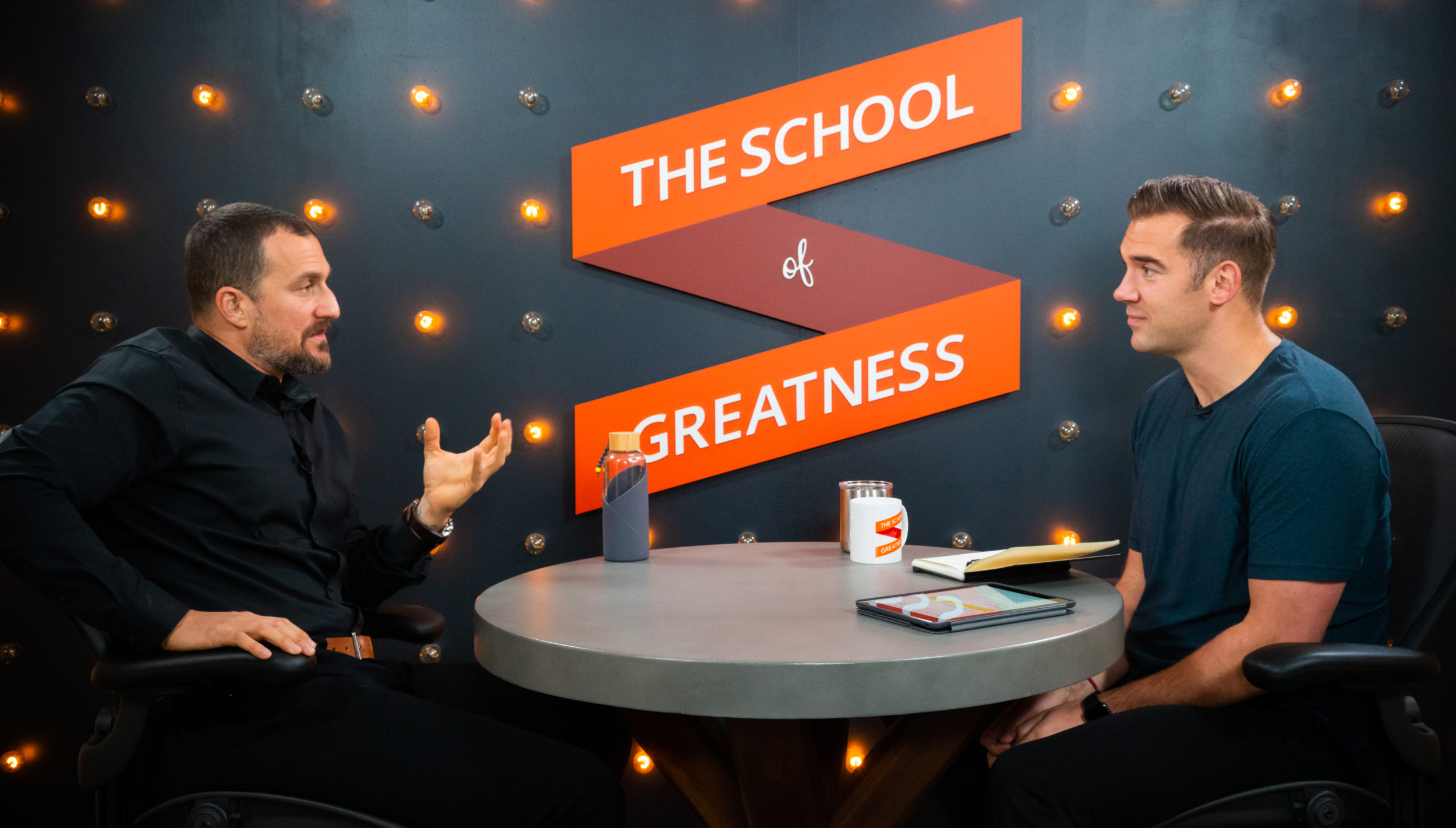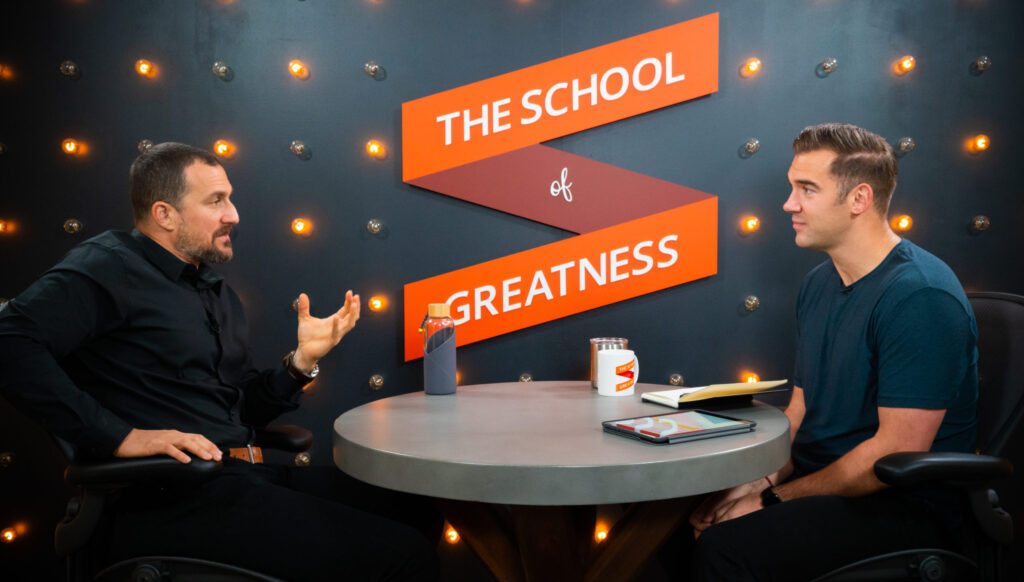Do you agree with me when I say that positive thinking is powerful?
For some people, positive thinking is about being delusional. They think that it underestimates outside events and neglects the realities around us.
Science thinks otherwise. It says that positive thinking is indeed productive, and if you know how to harness it, it can lead you to a life of limitless opportunity, happiness, and greatness.
Neuroscientist Andrew Huberman is back today. He’s a professor of Neurobiology and Ophthalmology in Stanford and runs the Huberman Lab which studies brain functions, how our brains change through experiences, and how to repair the brain after injury or disease. He’s going to share his knowledge and expertise to help us all believe that positive thinking truly works!
This is Part Two of our interview. In Part One, we talked about awesome stuff like unlocking the power of our minds so we can be at our best despite experiencing stress, fear, or trauma. If you want to learn more about practical tips like breathing and sleeping and how they can help deal with stress, make sure to check it out! With the things that are happening around us, it could be the answer that you’re looking for.
In today’s episode, we dive deep into the science of positive thinking, the science of gratitude and abundance, and the one belief Dr. Huberman believes everyone could benefit from. I’m so excited for you to listen to this, so let’s get started!
Who Is Andrew Huberman?
Andrew Huberman is a neuroscientist at Stanford University. He also runs the Huberman Lab, which studies brain states such as fear, courage, anxiety, and calm. They also work on discovering how we can better move in and out of these states through visual cues, breathwork, movement, and supplementation.
In his career, Andrew has made many important contributions to the fields of brain development, brain plasticity, neural regeneration, and repair. He’s received numerous awards and recognitions for his research and publications, including the McKnight Foundation Neuroscience Scholar Award, the Biomedical Scholar Award from the Pew Charitable Trusts, and the Cogan Award for Research in Vision and Ophthalmology.
In addition to being a tenured professor, Dr. Andrew is also a brilliant neuroscientist and teacher — he excellently explains complicated concepts in a way that everyday people can understand and helps us use neuroscience to improve our lives!
Andrew’s goal is to understand how the brain allows us to sense, evaluate, and respond to the world around us. He’s actively working on methods to re-wire and repair eye-to-brain connections for people who suffer from blinding diseases, as well as investigating emotions and how they drive human behavior.
Dr. Andrew is an expert on how the human brain works — I can’t wait for him to share his wisdom with you today!
The Science of Positive Thinking
How do you deal with life’s stresses and trials? William James, a psychologist and philosopher, suggests that the greatest weapon against stress is our ability to choose one thought over another. I think he’s talking about positive thinking, which is the ability to focus on what’s good.
Interestingly, the concept of positive thinking can be explained by science, too. Neuroscientist, Andrew Huberman, has an explanation of how this happens.
“Positive thinking is about learning how to take control of internal processes, and understanding that will shape your external environment. It’s about knowing that despite shifts in the external landscape, you’re going to be okay.” – Andrew Huberman
It might sound a little bit complicated, but Andrew discusses these internal processes that can help us achieve a mental attitude that looks forward to a better and happier life. According to him, we need to understand and take control of these two systems to live a life undaunted by obstacles and hardships. These are our mind’s dopamine and serotonin systems.
“Dopamine might be one of the most powerful neurochemicals in our system. It’s the molecule of motivation. It pushes us to have goals and to strive more. It’s an innate tool that helps us propel forward.” – Andrew Huberman
To know that our bodies have their way of developing a growth mindset is another discovery that truly amazes me! As Andrew said, the dopamine system is natural, which means that we don’t need any medicine or pill to have it. He even added that there are hardwired processes critical to the propagation of our species that can get direct access to the dopamine system. This includes finding our mates, the birth of a new child, food, social connection, and even water. However, he explains that this innate system has its downsides:
“There’s a little cul-de-sac that dopamine can take you into. Some people get so much dopamine release from these intermediate goals that they never make it to the end goal. Besides, because dopamine leads us to be in constant pursuit, it will eventually wear your nervous system down. You will be exhausted and eventually run [down], particularly if you’re always after external rewards.” – Andrew Huberman
To regulate dopamine, Andrew talks about another internal process. This time, it involves the serotonin system. Once you know what it’s all about, you’ll be able to understand how positive thinking is truly possible. Andrew explains it this way:
“Our body has another reward system, which is the serotonin system. This doesn’t put us into forward motion but tends to make us feel good. It makes us feel calm. It’s not about pursuing things, but being happy with what we already have. That’s an important reward mechanism that nature has built in to balance the dopamine system.” – Andrew Huberman
With these internal processes that we have, focusing on the good while we’re caught up in life’s challenges is not impossible. Again, Andrew shared science-backed claims that everyone can achieve a positive mindset because we’re all equipped with the system to have it. No pill or medication is needed — it’s within you and me. Our minds are intelligently designed with the capacity to get us through life’s most challenging moments. All we need to learn is how to tap in and use their secrets to our advantage.
If we can do this, then we’ll be on our way to being unstoppable and great!



